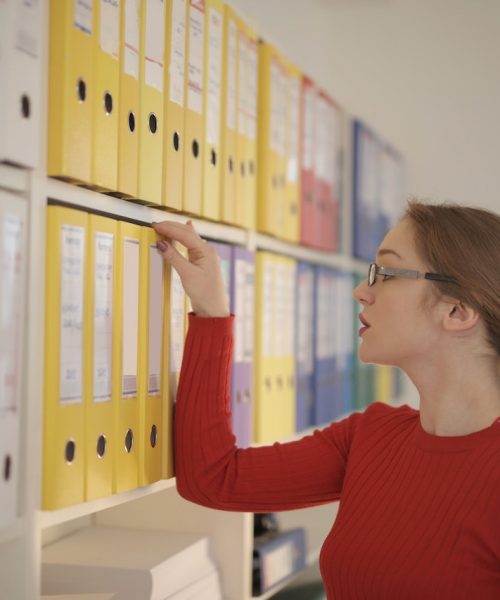Taxation of goods and services
If you make less than $30000 a year, you may be wondering if you should register for GST or HST. These taxes are paid on the sale of goods and services provided by businesses in Canada. Depending on your situation, you may need to register monthly, quarterly, or annually. In either case, you’ll have to pay the GST and HST on your taxable sales. However, there are several exemptions that may help you save money on your taxes.
There are a number of exemptions in Canada that can help you reduce the amount of taxes you pay. For example, you can pay zero-rate GST for some goods and services in Canada. If you sell certain goods or services to a business registered with the GST and HST, you can claim a credit for the amount of tax you paid. Some services, such as childcare fees and music lessons, are exempt from the tax.
If you make less than $30000 a year, you should be considered a small supplier for GST/HST. The CRA provides examples of groups that don’t need to register for GST or HST. The taxi industry and ride-share partners are both exempt.
In addition to the federal tax, there are provincial taxes you must pay. The provincial governments have set rates for these taxes. In most cases, the federal government imposes five percent GST/HST, and the provinces impose 8 percent or 10 percent PST. You can check the applicable rates at the CRA website. For businesses, you must register for GST/HST if you generate more than $30000 in revenue a year. However, if you make less than $30000 a year, you can register for the voluntary collection of the tax.
If I’m a non-resident vendor, the threshold is different than if I make more than $30000 a year. Non-resident vendors must register with the GST/HST if they sell goods or services in Canada. Generally, the threshold is based on the total revenue of the sales made through the platform. If you make more than $30000 CAD in one calendar year, you must register as a non-resident vendor.
Registration
If you earn less than $30000 a year, registration for GST may not be necessary. Nevertheless, you should still consult an accountant about your options. If you do decide to register for GST, you must report your business to the government, which can be time-consuming. Furthermore, once you have registered for GST, you will be expected to charge GST on all of your purchases and services beginning from that date.
You must register for GST and HST if you sell taxable goods or services. To qualify as a small supplier, your business must earn less than $30k per calendar quarter or in the last four consecutive quarters. However, if you make more than $30k, you must register for GST/HST within one month. If you’re a self-employed supplier, you can apply online.
For many businesses, the threshold is $30,000, but this can change over time. In some cases, businesses can’t reach this threshold in a single calendar quarter. In these cases, the revenue total for the last four quarters must be combined to reach the threshold. In these cases, the effective date of registration is April 30, so it’s best to register before the end of March.
In addition to registering online, businesses can also register via telephone or mail. There’s a checklist available at the CRA’s website that helps businesses determine which registration type will work best for them. The CRA will also ask about the structure of your business and organization. Charitable organizations are generally exempt from GST, but they can elect to register for GST.
When you sell taxable digital products, you will need to register for GST if you’re a non-resident. Non-resident businesses will need to register for GST when their revenue reaches $30,000 CAD in a calendar year. Those businesses can use the simplified GST/HST registration process. If you make less than $30000 CAD, you can apply to register under the normal GST/HST regime without providing a security deposit.
Payment
If you make less than $30k in Canada and are wondering if you’re required to pay the GST, there are two options available to you. First, you can choose to register for GST (Goods and Services Tax), or you can choose not to register at all. If you aren’t sure whether you need to register, consult a tax professional for further guidance.
If you’re a freelancer or self-employed individual, you don’t have to register for GST unless you sell taxable goods or services. However, if your revenue is less than $30k in a calendar year, you can qualify as a small supplier. However, you’ll still have to get a GST/HST number if you’re over the threshold.
Before registering for GST, consider whether you’re a small supplier or a large one. If you sell more than $30000 per year, you’ll need a GST account. Otherwise, you’ll need a payroll account. You’ll also have to report to the government on your income and expenses every quarter. This reporting process can be a hassle, especially if you’re unsure of your income or expenses.
In addition to the individual, small businesses can choose whether to register for GST/HST. This is particularly important for businesses that have revenues of less than $30000. If you don’t want to register, you can opt for the voluntary collection of GST/HST instead.
The Government of Canada has recently proposed changes to the GST/HST rules. Starting July 1, 2021, these new rules will also apply to non-resident businesses. A non-resident business will have to register under the new general framework and sell at least $30,000 in goods and services in a calendar year.
Non-resident businesses can register for simplified GST by following a simplified online process. Non-resident service providers and sellers of digital goods will have to collect GST on sales to non-registered buyers. In addition, sales made on non-registered websites will have to be sourced to the purchaser’s usual place of residence (e.g. home or billing address) in Canada. Businesses that opt for voluntary registration will also be eligible for GST reimbursement on business expenses.
How do I avoid paying GST if I make less than $30000? The GST is a broad-based consumption tax designed to apply to most goods and services consumed in Canada. Businesses that provide goods and services via the Internet should register for GST or HST at the appropriate rate for the purchaser’s location. For example, a service provider in Ontario must charge HST for goods purchased in Newfoundland and Labrador.
Exemptions
The federal government has introduced new rules for foreign digital service providers, including the collection of GST. Nonresident sellers will need to register with the GST/HST regime if their sales to non-resident Canadian customers exceed 30,000 Canadian dollars during a 12-month period. However, nonresident sellers do not have to collect PST if they do not sell any digital services to Canadian residents.
In addition, homeowners who sell their primary residence for profit do not have to charge GST on that sale. However, some individuals and businesses have been found to be evading this exemption. In order to qualify, the property must be your principal residence and must be occupied for at least four out of five years.
GST/HST can be charged for most goods and services sold in Canada, but there are some exceptions. In some cases, the government will waive this tax or exempt certain supplies. Some services, such as advertising, will not be subject to GST, and other services may be free of GST.
If you make less than $30000 in Canada, you may qualify for a GST exemption. You will be able to claim ITCs (Income Tax Credits) for GST/HST you pay. Some businesses offer a variety of exemptions.
Businesses that generate less than $30,000 in business revenue qualify for the Small Suppliers Tax (GST) exemption. These businesses are not required to register for GST/HST, collect GST, or remit the tax. However, if you want to register for GST/HST, you must register for the CRA. You can do this online.
Businesses are required to register for GST/HST if they make sales in Canada. Small suppliers are defined as small suppliers with a total world revenue of less than $30,000. Small suppliers may be exempt from paying GST if they are charitable. Charities have different thresholds. The threshold is calculated based on the revenue of certain affiliates and excludes sales of business goodwill and capital assets.
If your business makes less than $30,000 CAD, it can still be considered a small supplier until you reach this threshold. After that, you must charge GST/HST on all sales. Once you have reached that threshold, you have 29 days to register.





























